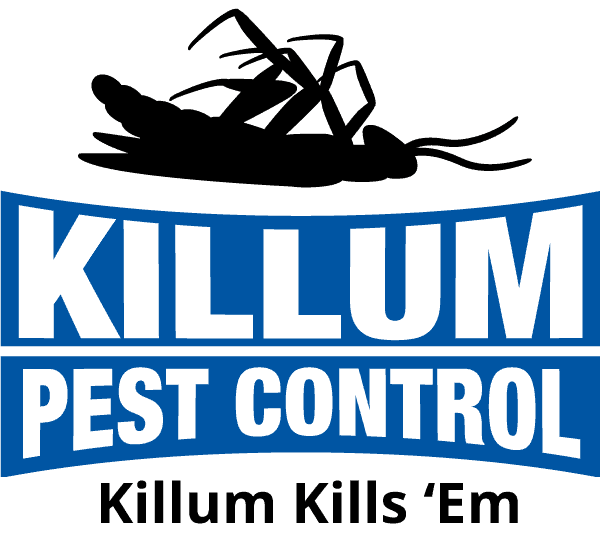Gardening is a popular pastime for many Texas homeowners, nurturing plant growth and maintaining beautiful landscapes. While gardening can be highly rewarding, it also comes with its fair share of challenges, including dealing with common pests that can wreak havoc on the flourishing plants.
In order to keep your Texas garden healthy and thriving, adopting environmentally-friendly organic pest control methods can make a significant difference in deterring and managing pests and their impact on your green space.
In this insightful guide from Killum Pest Control, we will provide practical tips and techniques to help Texas homeowners implement organic pest control methods in their gardens, aimed at deterring common pests without relying on synthetic chemical treatments.
1. Introducing Beneficial Insects and Predators
One of the most effective organic pest control methods is to create a natural balance in your garden by introducing beneficial insects and predators. These creatures feed on common pests that can harm your plants and help maintain the overall health of your garden ecosystem. Here are some beneficial insects and predators to consider adding to your Texas garden:
– Ladybugs: Ladybugs are a natural predator of aphids, mites, and whiteflies, and can consume large numbers of these pests daily.
– Praying mantises: These carnivorous insects actively hunt other pests, such as flies, mosquitoes, moths, and even small rodents.
– Lacewings: Lacewings, particularly green lacewings, prey on aphids, mealybugs, and other soft-bodied insects, making them an asset to any garden.
– Predatory wasps: Many species of predatory wasps hunt and lay eggs inside common pest insects, helping to control their populations.
2. Utilizing Plant-Based Pest Repellents
Certain plants can serve as a natural pest repellent, producing strong scents, essential oils, or other substances that deter insects. Introducing these plants to your Texas garden can help ward off harmful pests while maintaining an attractive and diverse landscape. Some popular plant-based pest repellents include:
– Marigolds: The scent of marigolds is known to repel a wide range of insects, including aphids, mosquitoes, and whiteflies.
– Lavender: Aromatic lavender is known for its mosquito-repellent properties, making it an ideal choice for both garden beds and patio containers.
– Garlic, onions, and chives: Members of the allium family contain compounds that repel harmful insects, such as aphids, spider mites, and Japanese beetles.
– Basil: This popular culinary herb contains natural oils that deter flies, mosquitoes, and thrips, making it a valuable addition to your garden and outdoor living spaces.
3. Implementing Physical Barriers and Traps
Physical barriers and traps can be a highly effective component of your organic pest control strategy, providing a direct means of deterring and capturing pests before they reach your plants. Here are a few examples of physical pest control measures for your Texas garden:
– Row covers: These lightweight, breathable fabric covers can be draped over plants to protect them from insects and other pests, without impacting sunlight, air circulation, or water availability.
– Sticky traps: Used primarily for monitoring and catching flying insects, such as whiteflies and fungus gnats, sticky traps can be placed near plants to intercept pests as they navigate your garden.
– Diatomaceous earth: This naturally occurring powder can be applied to the soil around plants, creating a barrier that deters crawling insects like ants, slugs, and beetles by damaging their exoskeletons as they move.
– Copper tape: A physical barrier made from copper can be installed around plant containers, raised beds, and tree trunks to deter slugs and snails from climbing and damaging your plants.
4. Exploring Organic Insecticides
Although prevention should always be the first line of defense in sustainable pest control, there are organic insecticides available to help combat persistent pest issues in your Texas garden. These natural insecticides are derived from plant- and mineral-based sources and break down quicker than synthetic chemicals, minimizing their environmental impact. Some options to consider include:
– Neem oil: Derived from the neem tree, this versatile oil acts as an insecticide, fungicide, and miticide, targeting a wide range of pests while remaining safe for beneficial insects.
– Insecticidal soap: Made from potassium salts of fatty acids, insecticidal soap effectively targets many soft-bodied insects, such as aphids, spider mites, and whiteflies, without harming the environment.
– Bacillus thuringiensis (Bt): This naturally occurring soil bacterium works as a biopesticide, targeting the larval stage of many common pests, such as caterpillars and mosquito larvae.
– Horticultural oils: These plant-based oils are used to control pests and fungal diseases on trees and shrubs, smothering insects and fungal spores to disrupt their life cycle.
Final Thoughts
Incorporating organic pest control methods into your Texas gardening practices can effectively protect your plants from common pests, while preserving the vital balance of your garden’s ecosystem. By introducing beneficial insects and predators, utilizing plant-based pest repellents, implementing physical barriers and traps, and considering organic insecticides when necessary, you can maintain a flourishing and eco-conscious Texas garden. Killum Pest Control is committed to supporting your efforts in creating a healthy, vibrant, and pest-free garden.
Take the next step in safeguarding your Texas garden organically with expert guidance from Killum Pest Control. Contact our pest control company in Houston today to discuss your concerns, and let our experienced team help provide customized solutions for a sustainable and beautiful outdoor living space!




